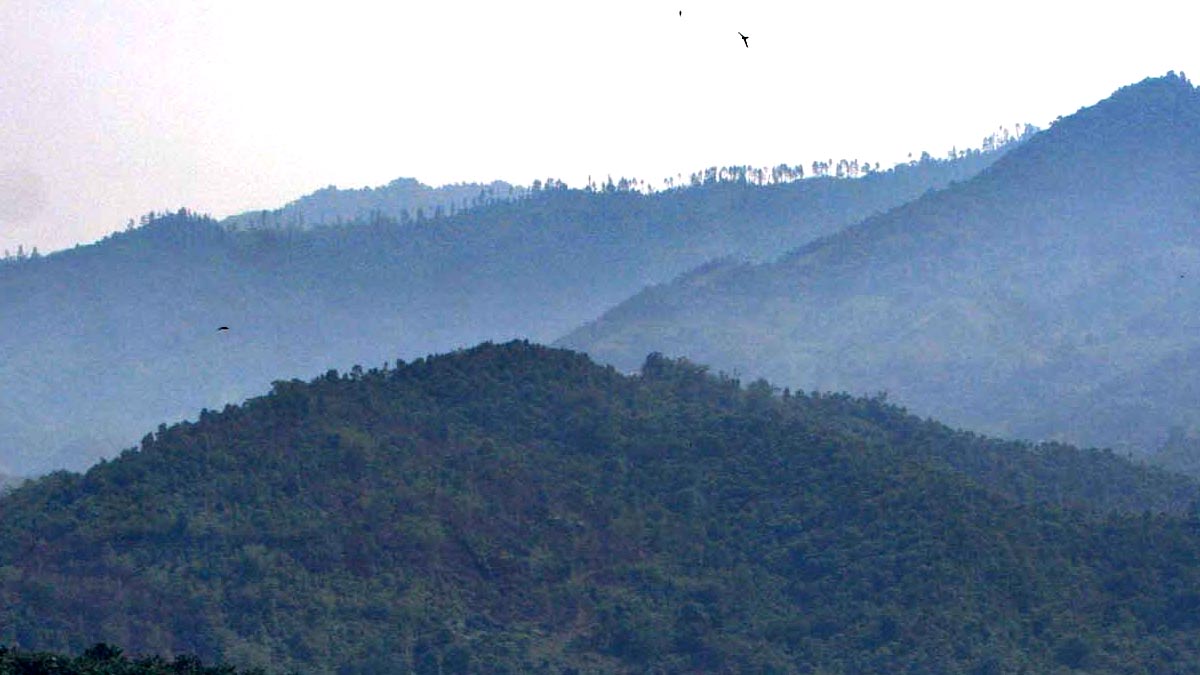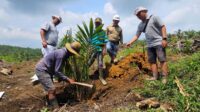PALMOILMAGAZINE, JAKARTA — Amid the Constitutional Court’s (MK) review of several articles within the Omnibus Law on Job Creation related to National Strategic Projects (PSN), two environmental organizations — MADANI Berkelanjutan and Satya Bumi — submitted an amicus curiae or “friend of the court” document on Wednesday (Oct 1, 2025). The submission aims to strengthen civil society coalition Gerakan Rakyat Menggugat (GERAM) in arguing that PSN not only poses legal issues but also threatens Indonesia’s forests and climate future.
In their submission, MADANI and Satya Bumi underscored that the “strategic” label attached to PSN projects often serves as justification for loosening spatial and environmental regulations. As a result, projects that should be subject to strict environmental protection are instead granted exemptions, endangering natural forests, Indigenous Peoples, and national climate goals.
According to their data, several PSN projects have accelerated deforestation. The food estate program in Merauke alone cleared over 4,500 hectares of forest between 2024–2025. The Obi Island Industrial Zone caused another 800 hectares of forest loss, while a nickel smelter in Pomalaa cleared 358 hectares since being designated a PSN. These areas are home to local and Indigenous communities now at risk of losing their livelihoods.
Also Read:
“Even more concerning, PSN’s derivative policies have legalized land clearing within protected forests and peat ecosystems — areas that should be under strict protection. This directly contradicts Indonesia’s Forestry Law and past Constitutional Court rulings that affirm the state’s obligation to safeguard forest sustainability,” said Sadam Afian Richwanudin, researcher at MADANI Berkelanjutan.
Communities have also felt the direct impacts of PSN implementation. In Hakatutobu Village, Pomalaa District, Southeast Sulawesi, residents face air and water pollution as well as marine sedimentation due to nickel smelter development. Satya Bumi’s monitoring found that the project proceeded without Free, Prior, and Informed Consent (FPIC), a right guaranteed under the Environmental Protection and Management Law.
“These findings show that the push for investment and rapid PSN implementation often comes at the expense of people’s fundamental right to a healthy environment. Instead of improving welfare, PSN projects have increased social and ecological burdens, particularly on vulnerable communities,” said Salma Inaz, Campaigner at Satya Bumi, in a written statement to beige-heron-208544.hostingersite.com on Friday (Oct 10, 2025).
Moreover, PSN projects risk undermining Indonesia’s climate commitments. The Merauke food estate project alone could add an estimated 782 million tons of CO₂ emissions — equivalent to economic losses worth tens of trillions of rupiah. The massive deforestation linked to PSN threatens the achievement of Indonesia’s Nationally Determined Contribution (NDC), FOLU Net Sink 2030, and Net Zero Emission 2060 targets.
Also Read:
“This failure would not only worsen community vulnerability to climate disasters but also damage Indonesia’s international reputation. Our credibility as one of the world’s largest rainforest nations would erode, jeopardizing access to global green financing,” said Alexandra, another campaigner from Satya Bumi.
MADANI and Satya Bumi argue that PSN contradicts Article 28H(1) and Article 33(3) of the 1945 Constitution, which guarantee citizens’ right to a healthy environment and affirm that natural resources must serve the public good. They stress that the “ease and acceleration” principles embedded in PSN prioritize corporate interests over social justice and environmental protection.
Their message to the Constitutional Court is clear: “No Project on a Dead Planet.” MADANI Berkelanjutan and Satya Bumi urge the Court to grant the judicial review and annul legal provisions that fast-track PSN implementation. Development, they emphasize, only holds true meaning when it aligns with forest protection and environmental preservation — because without a healthy planet, there can be no sustainable progress. (P2)




































